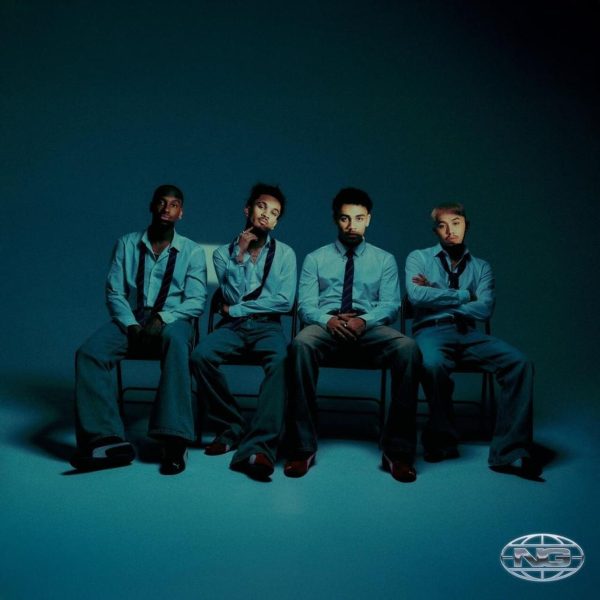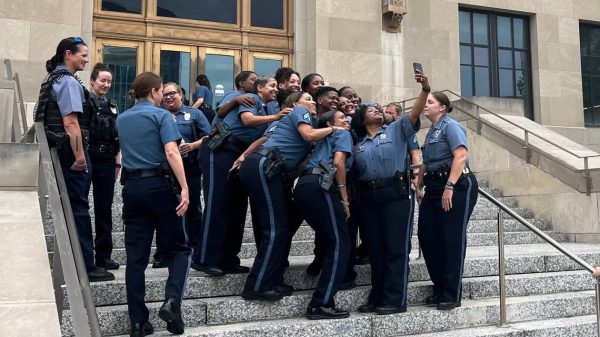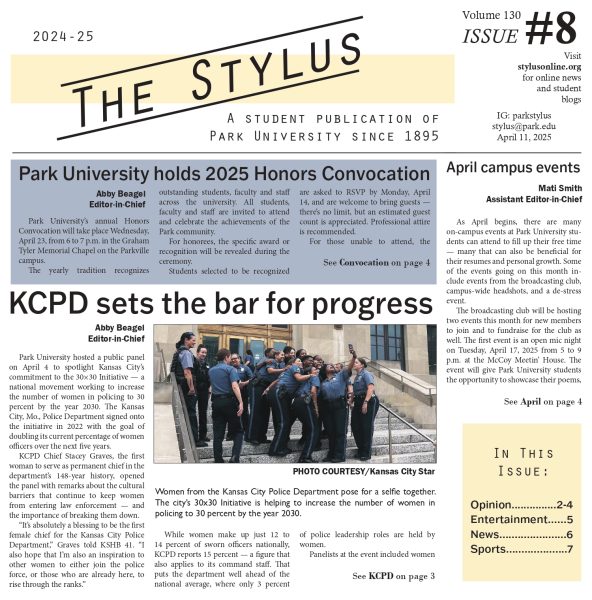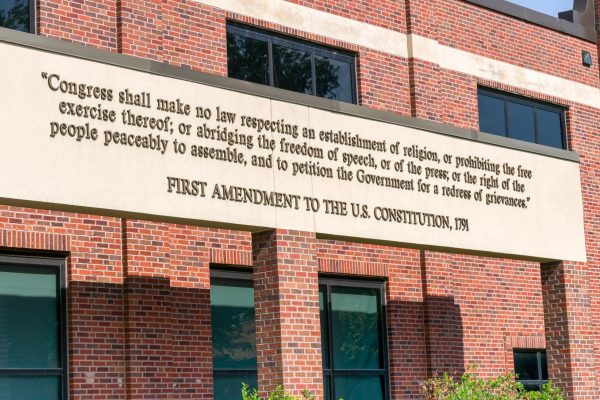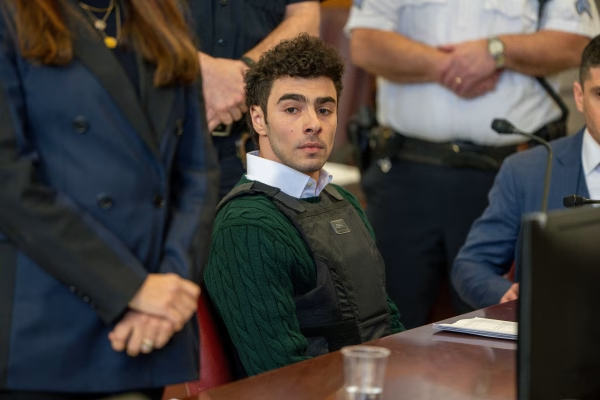Associate professor’s outreach fueled by passion
On the third floor of the Findlay-Wakefield Science Hall, atop the winding staircase, Gregory Claycomb, associate professor and program coordinator of chemistry, sits in his office sifting through emails. A tall bookcase stretches up the wall. Its shelves are bowed by rows of heavy physics books.
This year, Claycomb received the 2015 Outreach Volunteer of the Year award for the Kansas City local section of the American Chemical Society, an award given annually to one individual for outstanding outreach and volunteer service.
Claycomb has served as chair of the awards committee for the past two years and recently completed four years as chair of the education committee and one term as chair of the KC-ACS, the world’s largest scientific organization.
First and foremost, Claycomb says his passion for chemistry fuels and drives many of these outreach activities.
“Chemistry is what I love and enjoy,” says Claycomb. “It’s fascinating that everything is made up of atoms. Having the ability to understand that and even fabricate new things, that’s a really interesting aspect of chemistry.”
Pulling a bottle of hand lotion from his desk, he points out the often-overlooked list of ingredients on the back, noting how much work chemists put into creating things for everyday use.
“It takes chemists to make essentially everything,” he says.
“Chemists keep our food safe, and our water clean. Those are the messages I like to give. It’s unbelievable how many places chemistry touches our lives.”
Claycomb received his bachelor’s degree in chemistry from the University of New Mexico and his doctorate from Kansas State University. He says his is passionate is helping others find their path in chemistry.
Organizing and facilitating the National Chemistry Olympiad, a competition for high school students who are interested in chemistry or science, he has helped bring hundreds of these students to the Parkville campus.
As the facilitator, he is responsible for reaching out to the high school chemistry and science teachers at the 250 high schools in the Kansas City area to recruit students to participate at the national and possibly international level of the Olympiad.
“The goal is to identify outstanding chemistry students,” says Claycomb.
With members of Park University’s chemistry club, he also reaches out to local elementary and junior high schools, giving demonstrations to children about the positive side of chemistry and removing any fear about the subject.
As a professor, Claycomb says that two-thirds of his work at Park takes place outside the classroom. The responsibility of faculty, he says, can be summed up in three words: teaching, service and research.
“We spend about as much time teaching as we do doing research and internal and external service,” Claycomb says. “I think most students don’t recognize that two-thirds of our job is not teaching students. That’s a pretty significant thing to think about.”
Claycomb breaks down the three components one by one, unpacking the many roles played by faculty, which ultimately benefit the university and students.
The service aspect is both external and internal. Externally, Claycomb participates in organizations such as the ACS, which he says has the effect of getting Park recognized. Internally, professors serve on the faculty senate or on committees at the university.
The research portion is what Claycomb says can directly impact students.
“You really are trying to keep yourself current,” he says. “As fields evolve, change or grow, and you are doing research, you are both keeping abreast about what’s happening but you’re also contributing to that knowledge by finding out new information.”
Claycomb says participating in research outside of the classroom allows faculty to pass this information along to students entering these fields.
“What we find in research, we can then use to help navigate students,” Claycomb says. “We have an idea of where the field is at, where the institution is at and the knowledge is at, and therefore we can inform the student, ‘this is where you need to be at that level.’
You get to know what students need to know by the things you do outside of the classroom.”
Above all, Claycomb says Park University’s faculty and staff have contributed to his achievements and he is grateful for the support and guidance.
“I am very appreciative to Park and to everyone here, faculty and staff, administration,” says Claycomb. “It’s a great place to work. I feel like my success is owed in large part to everyone at Park. You can try really hard, but you need people steering you and directing you. When I came here, there were people who helped navigate me. I think Park is very supportive. I feel like my success didn’t happen just because of me. I had a lot of help, guidance and support from a lot of people from within the sciences and actually across the university.”
Your donation will support the student journalists of Park University. Your contribution will allow us to cover our annual website hosting costs, freeing up other funds for equipment, printing and training.



